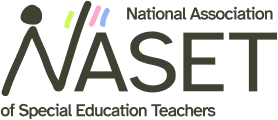Sara Sanders, Ed.D.
Skip Kumm, Ph.D.
University of Alabama
Brandis M. Ansley, Ph.D.
Central Michigan University
Kristine Jolivette, Ph.D.
University of Alabama
Abstract
Staff who work in juvenile justice settings frequently face high levels of occupational stress, secondary trauma, and burnout as a result of numerous stressors. Without recourse, these stressors can negatively impact staff well-being, and decrease staff self-efficacy and ability to implement treatment programming to the youth they serve with fidelity. One way to reduce staff levels of occupational stress and improve well-being is consistent use of self-care practices. It is critical to develop an effective approach to support the increase of self-care practices among staff in juvenile justice facilities. The I-CARE instructional approach, influenced by the self-regulated strategy development (SRSD) and multi-tiered system of support (MTSS) frameworks, is one such method for teaching daily self-care practices. We describe the I-CARE instructional approach and how it can be supported within juvenile justice facilities.
Keywords: staff self-care; I-CARE; juvenile justice; multi-tiered system of support, professional development
Read or Download Instructions
-
To Read or Download this Article – Click Here
-
To Download the SPRING/SUMMER 2022 Issue of JAASEP – Click Here
